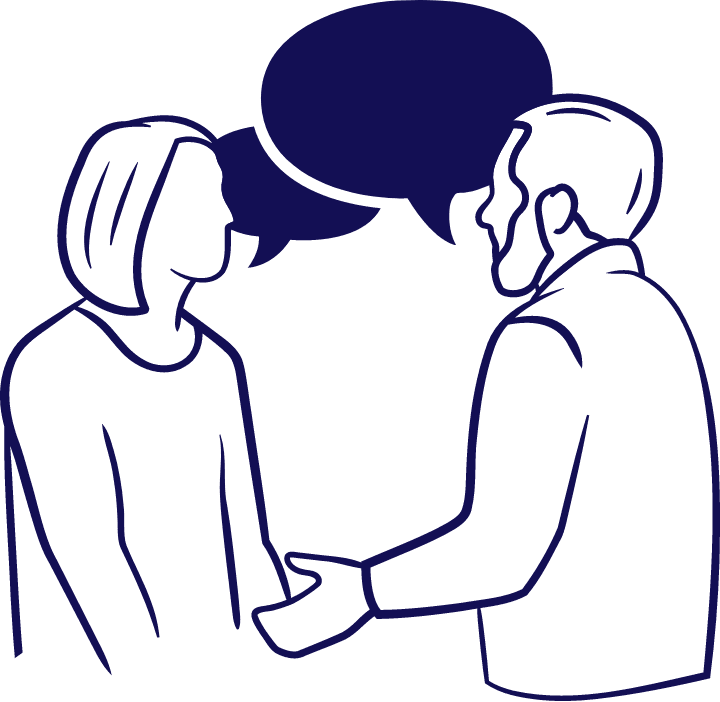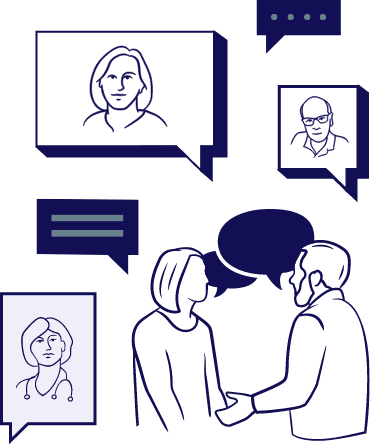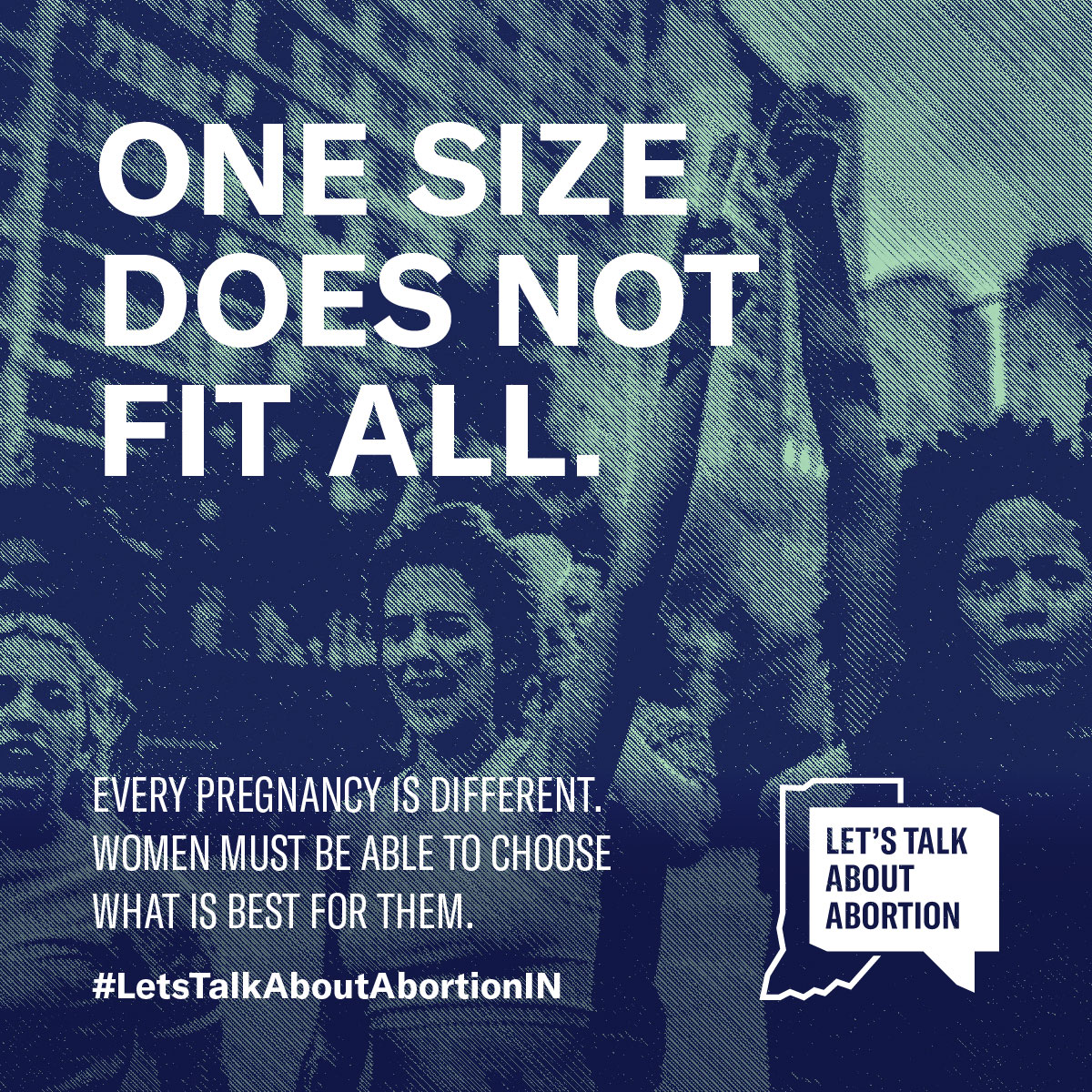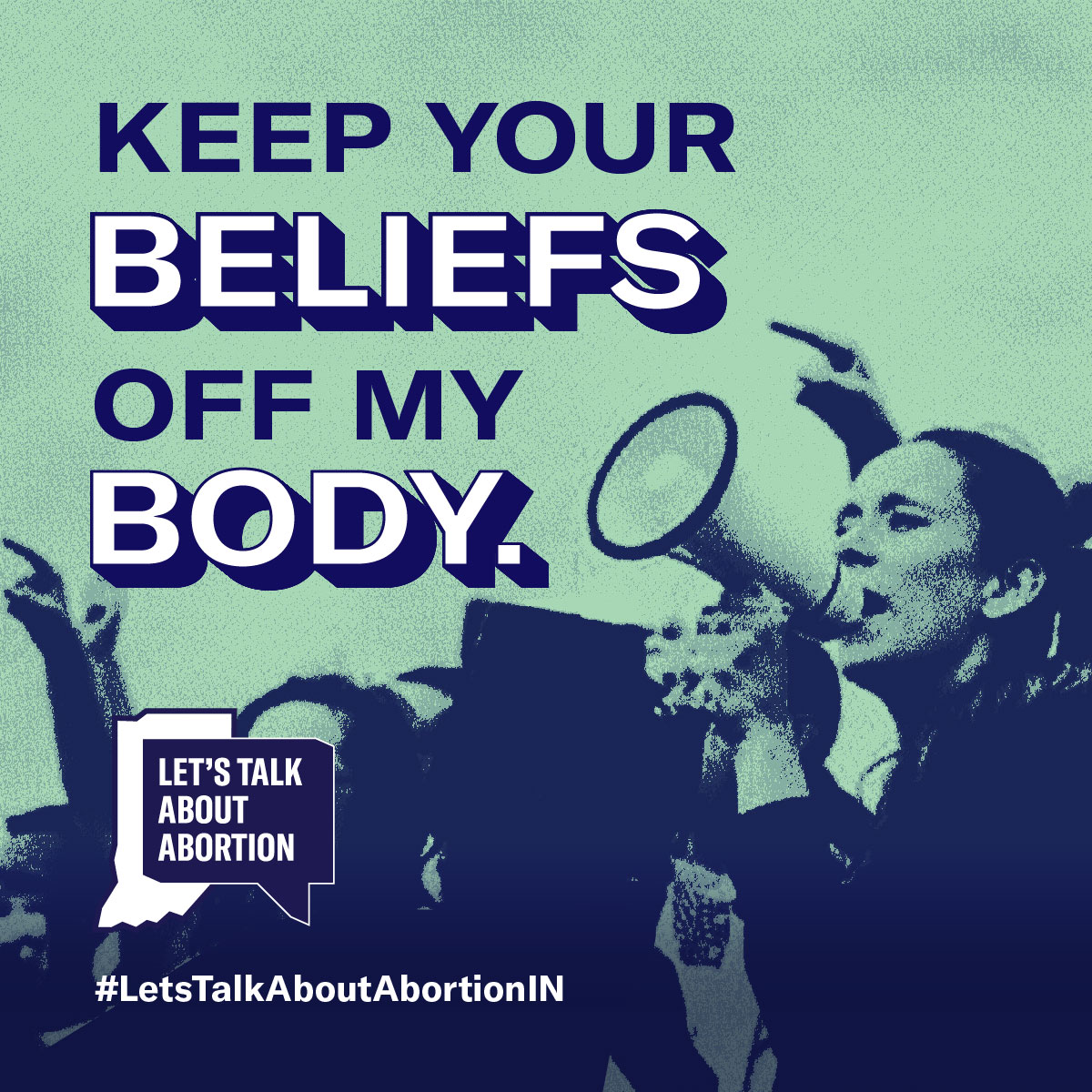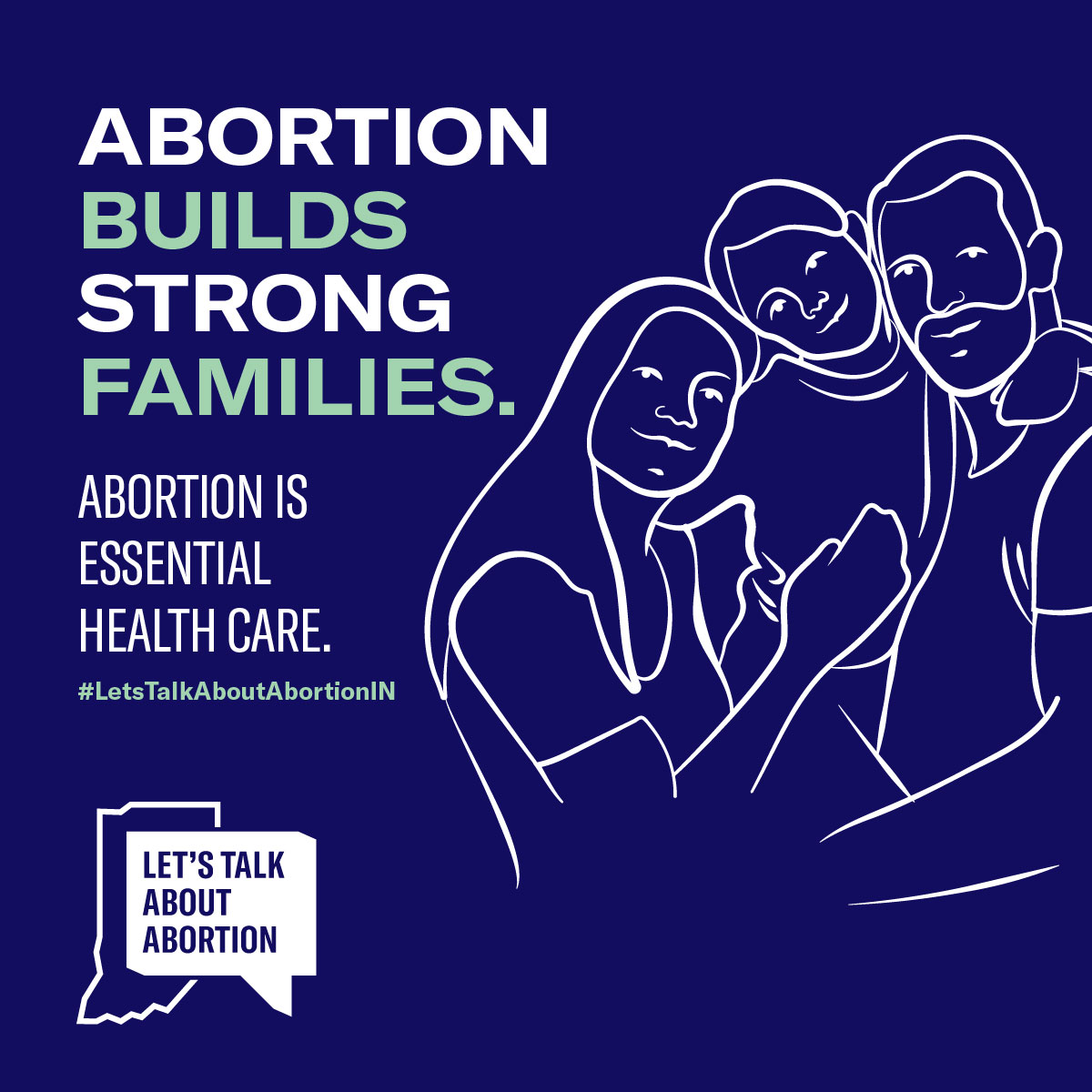Let’s break it down
The first step is to ask a question and really listen to their response. Really hear what matters to them and engage with the values your conversation partner is expressing. You can outline their beliefs back to them to build rapport and find mutual understanding. Turns out, Hoosiers agree on a lot more than you might think. So, ask them why they feel the way they do about abortion. Ask them what experiences informed their views.
Download the GuideLet’s break it down
Many people have complicated opinions about abortion. Maybe they grew up hearing scary things about sex and conception out of wedlock and abortions. But when we open up space in a conversation for it, we can find points we have in common. Maybe we agree that every pregnancy is different, and there’s no one-size-fits-all solution. Or that reproductive health care shouldn’t be hard to access. Chances are, the person you’re speaking to will agree with you on that.
Download the GuideLet’s break it down
You can build a bridge of personal connection by sharing a story from your life or from someone you know who has had an abortion. (Make sure it’s okay to share their story!) Maybe you know someone who hasn’t been able to access adequate reproductive health care since the ban was put in place, and their future feels uncertain. Or maybe someone you know simply wasn’t ready to have a baby, and that choice was taken from them. By putting a face to a real-life example, you can illustrate how some of the values you share might lead a person to choose an abortion.
Download the guideLet’s break it down
Ask your conversation partner about a time they made a difficult choice that was right for them, whether it was healthcare related or not. Maybe they chose to pursue a career over having children. Or maybe they decided becoming a stay-at-home parent was best for their children.
Download the guideLet’s break it down
Summarize the values you hold in common, and relate their story of personal choice—and how choice should be available to everyone—back to that of those who are seeking abortions. If your conversation partner had an experience with abortion—either themselves or someone they know—connect on those same values and common ground you’ve been building on throughout the conversation. This can help the issue feel more personal, since every pregnancy is different. When we really listen to our neighbors’ values, put a face to the problem, and find common ground on issues that matter to them, we can have difficult conversations and change minds in the process.
Download the guide